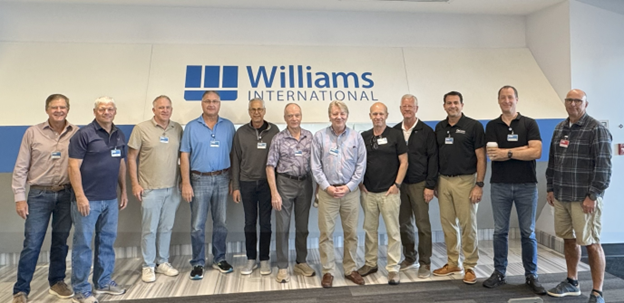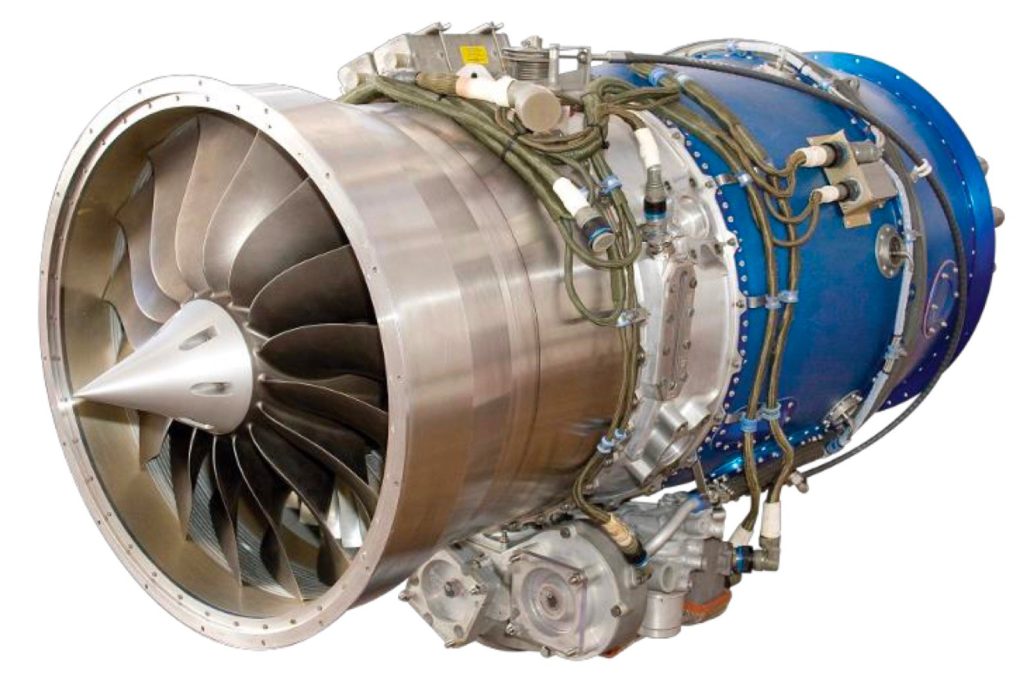by CJP Advocacy Committee Chair Jonathan Bailey
On August 1, 2025, twelve CJP members were welcomed to the Williams International headquarters in Pontiac, MI to attend a day of training for owners and operators of Williams FJ44 series turbine engines.

The day was spent on 1) turbine engine theory and design, 2) operations, maintenance and troubleshooting, and 3) hands-on training and instruction. CJP members were graciously hosted by the Product Support team, including Clayton Quick, team leader, technical advisors 1st shift and Troy Lewis, director of technical field support.
Our understanding of turbine design and operation was taken far beyond what is taught during type rating and recurrent training, thanks in no small part to physical examples of all key engine parts available to pass around and discuss. Personally, I came away with a deeper appreciation for the brilliant design and reliability turbine engines provide. And while the basic concepts may seem simple, execution and refinement in terms of materials science, manufacturing, and repair are incredibly complex.
Williams then invited us into the engine repair and overhaul shop, where each of the sequential workstations is equipped with the exact tools and technology needed to address each stage of work. We were shown the Snap-On Level 5 Tool Control systems that require a user login to electronically track all tools removed and replaced; each drawer contains only the exact tools needed for each stage of work.
We also talked with veteran turbine expert and craftsman Rick Lehto, who is personally restoring the turbine engine in Jay Leno’s 1963 Chrysler Turbine Car, one of only three remaining in private hands (with only six others in museums). Founder Sam Williams worked on the Turbine Car at Chrysler before starting Williams International.
This special car was on view in the shop with the engine removed on a work stand in mid-overhaul, all surrounded by a protective plexiglass enclosure (no drooling allowed.) It was a special treat to see Jay’s car up close. Despite the technology involved and extreme environments our engines operate in, their care is still a very hands-on and human driven enterprise.
This was further borne out in our last module for the day: engine inspection and repair training. We were taken to the shop where Williams staff provide training on a variety of FJ44 engines, and were given hands-on instruction for main fan rotor removal/installation and borescope inspections.
Let’s just say, ‘don’t try this at home!’ The Williams Product Support Team has seen it all… including engines that have ingested wood 2x4s! The insights we gained were invaluable.

We also learned they recommended to call before deciding to perform a borescope inspection. While this inspection has great value when looking for specific issues (oil leaks, over-temp damage or degraded performance) it may not always provide the generic assessment of engine health that is commonly believed. For that, start with a Performance Check as described in the Engine Manual which is available for download. It’s simple, and any owner or service station should be able to perform it.
The CJP Advocacy Committee plans to repeat this event annually, and we encourage every Williams engine owner/operator to attend. The company offers week-long courses to owners that run approximately every month; they also encourage all owners to call and check on update campaigns or with operational and maintenance questions.
A big thanks to the Williams Product Support team for making this event possible, and for sharing their time, deep knowledge and enthusiasm. For any support questions or issues, please reach out to Williams Product Support:
WIproductsupport@williams-int.com
1-800-859-3544 or 248-960-2929